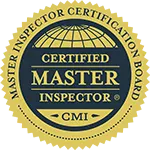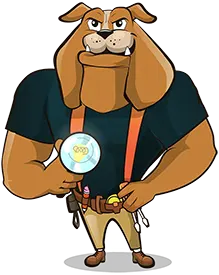For someone with 16 years and 10,000 inspections under his belt, this question makes me shake my head.
And if you happen to be a service provider, yourself, you’ll understand why…
It takes time and dedication to master your craft.
In fact, they say it’s somewhere between 7-10 years.
Years 1-3 you’re a student
You’re still an outsider to your trade.
There’s alot of excitement, but also alot of impatience, fear, and confusion.
If you were playing piano, you’d only see a box, 3 pedals, and a bunch of black and white keys.
You learn to play, but the instrument is still foreign to you.
Years 3-7 you’re a practitioner
Now you’re an insider and gaining fluency.
You’re thinking outside the box and developing your own style.
You can clearly see the connection between you, the instrument, and the music.
Years 7+ you’re a master
You’ve spawned a gut-level instinct of the music and your instrument has become a physical extension of your body.
Your spiritual innards not only intuit the mechanical connections and cosmic relationships between the keys, pedals, speed, pressure, and music.
They bend them to your will.
Tapping into your inner genius to create music no one has ever heard before.
This is what it means to be Yoda.
And the path all professions take toward mastery.
Including:
- Artists
- Engineers
- Auto mechanics
- Lawyers
- Doctors
- Hairdressers
- Plumbers
And especially home inspectors
And while professional home inspection organizations ASHI® and InterNACHI™ create minimum standards, that’s about the limit to their influence.
Each inspector will be different in nearly every way.
Whether it’s:
- Experience
- Natural Talent
- Curiosity
- Personality
- Commitment
- Work ethic
- Training
- Items inspected
- Knowledge
- Professionalism
- Bedside manner
- Communication skills
Even their reports will be different – including how well they’re written, how they’re organized, and how easy they are to understand.
Every inspector is a grab bag of all these things.
And some are much better than others.
Which explains why the master costs more than the student.
For example,
Would you expect Michaelangelo to accept a project for the same commission as one of his apprentices?
Would it be practical to hope one of his lesser experienced students will produce the same quality?
Would you even try to insult him by demanding his highest quality at the bare minimum pupil price?
No. No. And hell no.
The $100,000 Napkin
A man once interrupted Picasso during his evening meal. Pulling a napkin from his pocket, the man said, “Could you sketch something for me? I’ll pay you for it. Name your price.”
Picasso thought about it, took a charcoal pencil from his pocket and made a quick sketch of a goat. It took only a few strokes, but it was unmistakably a Picasso. The man reached for the napkin, but Picasso did not hand it over.
“You owe me $100,000,” he said.
The man was outraged. “$100,000? Why? That took you no more than 30 seconds to draw!”
Picasso crumpled up the napkin and stuffed it into his jacket pocket.
“You are wrong,” he said, dismissing the man. “It took me 40 years.”
The moral of the story?
Mastery will always demand a higher price.
The not-so-confident and less experienced will be cheaper because that’s what their expertise is worth at the time.
And you may end up regretting that decision later.
At least if you’re expecting the highest quality.
So steer clear of the cheap inspection.
Because mistakes can cost serious trouble and big bucks.
That’s why great home inspections don’t cost, they pay.
And the measly $100 or $200 difference for the better inspector could easily uncover an extra $2k-$3k in hidden repairs that the lesser experienced might miss.
It happens all the time.
This is why home inspections are not created equal.

















Very nice, will share.